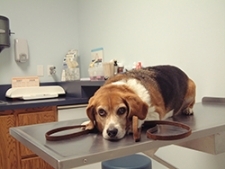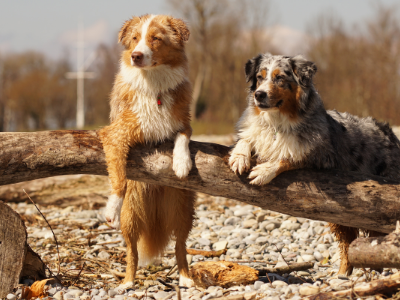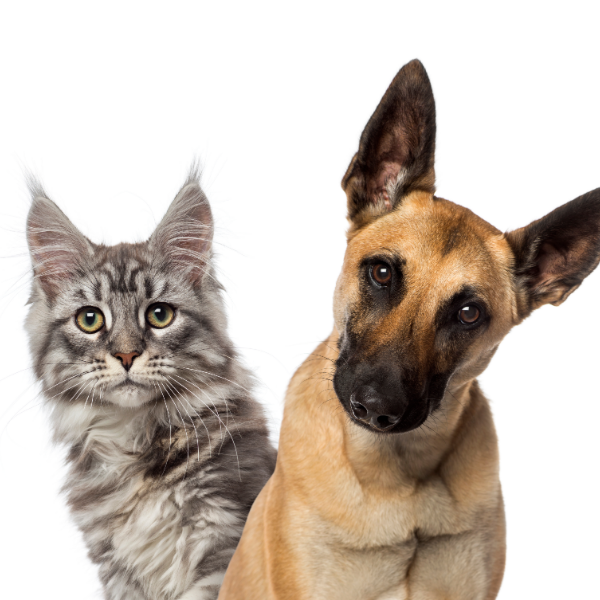If you have an aging pet and have decided to make the switch to a raw diet, there are important things to consider. Firstly, an animal that has eaten dry food for its whole life will usually need a more gradual switch than a younger pet. If the animal has any existing digestive, liver, or kidney issues, it would be advisable to have your pet monitored by your holistic veterinarian during the switch. Oftentimes, older animals will go through a detoxification process as their bodies use the vitamins, minerals, amino acids, and other vital nutrients to regain homeostasis. If the switch is done too quickly, the detoxification process can cause discomfort which can present differently depending on the health status of the animal in question. A slow introduction to the new food is a must to make the switch smoothly. When done correctly, the new diet will produce great results.
There are many ways to introduce a raw diet to your pet. You may begin by soaking his current dry diet with warm water or salt-free chicken broth or you may choose to use a high-quality canned food and mix the raw into the canned. You may also introduce bland cooked meat such as chicken breast or beef with no bones to increase protein in the diet before beginning the raw diet. You may also try introducing small raw meals separately from dry food meals, slowly increasing the raw and decreasing the dry until 2 or 3 raw meals are given daily and kibble is eliminated. For dogs, a 75% meat/bone/organ and 25% veggie ratio should be applied and a balance of poultry and red meats should be given. For cats, an 85% meat/bone and 15% heart/liver ratio should be applied and a balance of poultry, bones, and a small amount of lean red meat. Adult Dogs and cats generally need about 100g of raw per 10 lbs of bodyweight but seniors may need more or less depending on their age, energy level, and ability to absorb nutrients. Supplementation with natural foods is recommended for older animals (discussed below). It will vary depending on the pet in question and we are always available to help!
Adjustments for Seniors on Raw
If your dog or cat is already on a raw diet and beginning to show his age, there are adjustments that can be made to ensure foods are being absorbed correctly. You may wish to adjust his/her daily food intake depending on their body score. An overweight or underweight senior is not a happy pet. Some animals will need more food as their ability to absorb nutrients becomes less efficient. Others will need less food as their energy level decreases. Some pets will lose the ability to chew bones as their teeth become sensitive or ground down from recreational use. They may need an adjustment of ground bone in the diet. Rawbone dust or bone meal may be added to meat meals (without bone) to provide extra calcium for seniors that can no longer chew bones. Other adjustments can be made depending on each individual animal’s needs. Ask us for specific suggestions on how to ensure your aging friend is receiving the right foods.
Natural Food Supplementation for Senior Dogs and Cats
There are some basic supplements that have been found to be useful supplements for older pets. As animals age, their ability to absorb nutrients from foods becomes compromised. Supplementation gives the body therapeutic doses of foods that fight free radicals, oxidation, inflammation, and other age-related issues.
Essential Fatty Acids -Salmon/Mackeral/Sardine Oil
EFA's provide anti-inflammatory properties. They can be extremely helpful for animals with arthritic conditions, inflammatory problems of the digestive system, and bowel and chronic skin conditions. If your dog is already on a raw diet, cold-pressed salmon, mackerel or sardine oil may be added to the diet to improve countless issues associated with old age. If your dog is currently being given EFA’s, they may be increased for therapeutic results. Ask us or your holistic veterinarian how much you should give your dog.
Natural Multivitamin - Green Foods: Kelp/Spirulina/Etc.
Powdered kelp, spirulina, and some types of algae are known super-foods and provide natural sources of vitamins, minerals, amino acids, phytonutrients, and much more. It can be used as a natural source multivitamin for senior pets. 3P has some wonderful products made specifically for dogs and cats. Ask us for more info.
Immune Support - Dimethylglycine (DMG)/Vitamin C
DMG is the only known natural immune modulator, not to be confused with an immune stimulant. An immune modulator helps the immune function return to a healthy state whether it is over-functioning (eg. inflammatory/auto-immune responses) or under-functioning (eg. lowered ability to fight infection). It has been found to be useful for several immune-related conditions.
Vitamin C, especially Ester C, is a wonderful addition to a senior's diet and helps boost immune function and reduce the oxidative effects of aging. It also helps to increase metabolic function in older animals. Human or pet products can be used. Dosage will vary depending on species and weight.
Joint Support - Glucosamine/Chondroitin
There are several reputable joint support supplements on the market. As your pet ages, he or she may feel stiff or even develop inflammatory joint pain/arthritis. A joint support product with a combination of glucosamine, chondroitin, MSM, Perna mussel, manganese, and vitamin C will be useful for most pets with joint discomfort. Ask us for product recommendations.
Liver & Kidney Support - Glandular Supplements
There are many liver support products on the market for pets but not all are created equal. Glandular supplements have been found to be extremely useful for supporting the liver, kidneys, and other organs. As animals age, organ function can become less efficient. Your pet may benefit from glandular supplementation. Ask us for our recommendations.
Antioxidants
High amounts of antioxidants are naturally found in the raw diet but for animals with a degenerative disease, extra supplementation has been shown to slow the progression of the disease. There are a plethora of antioxidant supplements but it will depend on the individual as to what is best.



